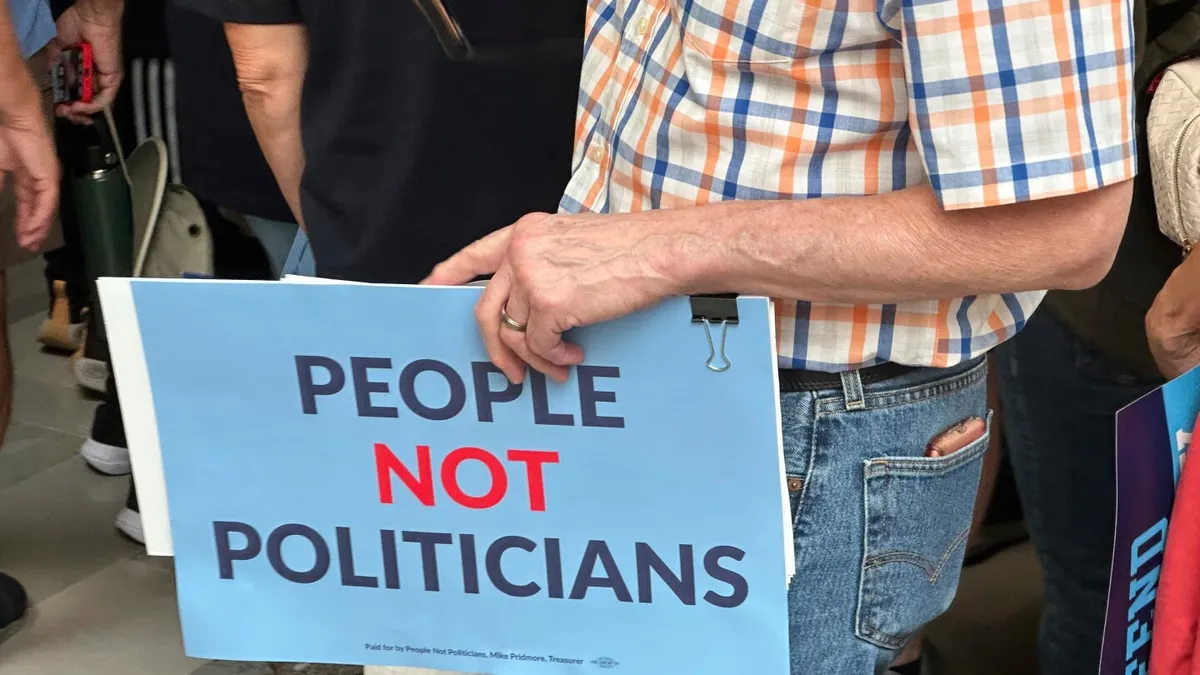
In a significant political move, Missouri Republicans have provided President Donald Trump with a legislative victory by granting final approval to a new redistricting plan on Friday. This plan aims to potentially secure an additional U.S. House seat for the Republican Party in the upcoming elections. The Senate's approval now sends the redistricting map to Republican Governor Mike Kehoe, who has indicated his intention to sign it into law shortly.
In response to the redistricting plan, opponents have quickly mobilized, announcing a referendum petition that, if successful, could trigger a statewide vote on the newly proposed map. Elsa Rainey, a spokesperson for the group People Not Politicians, emphasized, “This fight is not over. Missouri voters — not politicians — will have the final say.” This grassroots effort underscores the contentious nature of the redistricting process in Missouri.
Following the 2020 census, U.S. House districts have been redrawn nationwide to reflect population shifts. Missouri is now the third state this year to engage in mid-decade redistricting, marking a growing national trend where states are attempting to gain partisan advantages ahead of the midterm elections. Recently, Republican lawmakers in Texas implemented a new U.S. House map aimed at securing five additional seats, while Democratic lawmakers in California are pursuing a similar strategy, albeit requiring voter approval.
Every congressional seat holds significant weight, especially as Democrats need to gain just three additional seats to take control of the House. Control of the House would grant Democrats the power to obstruct Trump's agenda and initiate investigations into his administration. Trump is keenly aware of the historical trend where the president’s party often loses seats during midterm elections. On his social media platform, he praised Missouri’s “much fairer, and much improved, Congressional map,” claiming it would assist in sending an additional MAGA Republican to Congress in the 2026 midterm elections.
Republicans in Missouri are particularly focused on reshaping a district in Kansas City. Currently, the GOP holds six out of Missouri’s eight U.S. House seats. The revised map, which passed the Republican-led state House earlier this week, is a centerpiece of a special session convened by Governor Kehoe. This session also includes proposals aimed at making it more challenging for citizen-initiated constitutional amendments to secure voter approval.
The redistricting plan specifically targets the seat held by Democratic Rep. Emanuel Cleaver, altering his Kansas City district. The new map reduces the number of Black and minority residents in Cleaver’s district by drawing a dividing line along a historically significant street, which has long represented segregation between Black and white communities. Cleaver, a former mayor of Kansas City and a prominent figure in local politics, has vowed to challenge this new map in court while planning to seek reelection in 2026.
Residents in Kansas City have expressed concerns regarding the implications of the new districts. Cleaver’s updated district would stretch from near the city’s St. James United Methodist Church, where he once served, to rural Vienna, encompassing a significant geographical area. This change raises alarm among local leaders and constituents, with Democratic state Senator Barbara Washington criticizing the map for “erasing the voice of my community.”
Roger C. Williams Jr., a 79-year-old Kansas City resident, echoed similar sentiments, reflecting on the discriminatory practices he observed while growing up in Arkansas. He stated, “What Republicans are doing now in the state of Missouri is they’re taking me back to a time when I, or people that looked like me, would not have an opportunity, because they wouldn’t have a voice.”
Despite the backlash, Republican lawmakers defended the redistricting plan, asserting that it splits fewer counties and municipalities into multiple districts compared to the current layout. Senate President Pro Tem Cindy O’Laughlin stated that the map “strengthens Missouri’s conservative voice and ensures every Missourian is fairly represented in Washington.”
With two lawsuits already filed against the redistricting plan, including one initiated on behalf of voters claiming that mid-decade redistricting violates the Missouri Constitution, the legal battle is just beginning. A hearing is scheduled for Monday regarding another lawsuit previously filed by the NAACP. As Missouri navigates this contentious political landscape, the implications of the redistricting plan will likely resonate well beyond the immediate election cycle.